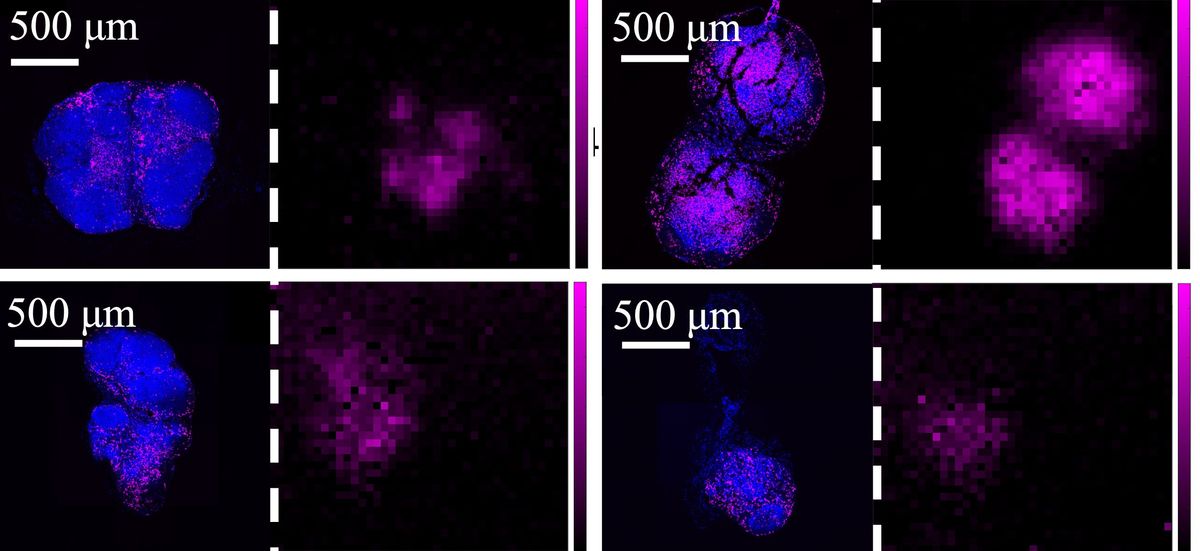I was scrolling through emails on my phone one recent morning when a strange message appeared among the usual mix of advertisements and morning newsletters. It was a confirmation for an upcoming doctor’s appointment in New York City, but came from an address I’d never seen before. And at the top, there was a friendly note: “I guess this is for you :)”
The note, I would later learn, was written by a Norwegian named André Nordum, whose email address is just a few letters different from my own. André, a 33-year-old banker in Oslo, had received the confirmation by mistake, thanks to my messy handwriting on an intake form.
Realizing this, he’d googled my name to try to track down my personal email address and forward the message to me. When he couldn’t easily find my address, he correctly guessed it based on the similarity of our last names (my surname, Nordrum, is also Norwegian).
All day, I thought about André’s act of digital kindness and the heartwarming fact that a stranger had spent time and effort trying to send me a bit of important information. I also felt a twinge of guilt: I’d received emails in the past—from car dealerships and day cares—that were clearly meant for other people, and I’d never forwarded any of them along. What does that say about me as a person?
André, it turns out, had also ignored the first email he’d received from my doctor. But when the second one arrived, he started to worry that I might actually miss an appointment. And, he later told me by email, “I did not want to get emails about your dermatology history for the foreseeable future.” (Don’t worry, André, I’ve updated my records.)

The whole situation reminded me of another strange case of mistaken identity. For years, people who tried to email my brother, Eric Nordrum, inadvertently sent their messages to a fellow named Emanuel Nordrum, whose email address is just one letter off from Eric’s.
Emanuel, who is (surprise) also Norwegian, patiently replied to many of those stray emails, alerting the senders and steering the messages back to Eric, their rightful recipient.
“This has been going on for a decade,” Emanuel told me recently from his home in Oslo, sounding pleased that I’d called to discuss the matter.
One of the first such emails to inadvertently land in Emanuel’s inbox was sent by my father on 3 August 2009. In a series of emails that he mistakenly sent to Emanuel over the years, my father wrote about playing pickleball, cheering for Ohio State’s football team, and the goings-on at our family’s former home in Adams County, Ohio.
In one note, he reported that a “broken and bleeding callous” that afflicted our family dog had miraculously healed. These are the kinds of mundane family details that would seem strangely intimate to share with a stranger. And yet there was Emanuel, privy to it all, thanks to the digital proximity of his email address to Eric’s own.
“It’s a little bit like sitting on the bus or overhearing somebody in the restaurant or something,” Emanuel told me. “They’re having a conversation that they think is for the family, and you just happen to be placed so that you can hear everything.”
Emanuel, a 35-year-old filmmaker, wrote back to that original message to tell my father that he was emailing the wrong person:
Hi,
I'm afraid you've got the wrong email address for your son.
My name is Emanuel Nordrum and I reside in chilly Norway, which is nowhere near Adams County. As such, I'll have to take you at your word about the Buckeyes, but I do hope your team wins, despite or with the odds, and that you enjoy the rest of your weekend.
When my father made the same mistake two years later, Emanuel politely responded again, writing, “Hi Jim, I'm afraid you got me again, rather than your son Eric.”

Through his good-natured replies, Emanuel struck up a conversation with my father—about the Winter Olympics, and the possibility that our families may share some Norwegian heritage.
Emanuel also responded to stray emails to Eric from my other brother, Kyle. Once, Emanuel forwarded a plane ticket confirmation and wished Kyle a pleasant trip to Las Vegas.
Emanuel proved helpful in other ways, too. One day in 2016, he was reading a Reddit thread about a website that lets U.S. citizens search for unclaimed funds they’re owed in various states. When Emanuel typed in his own name to test it out, “Eric Nordrum” popped up in the results.
Seeing this, Emanuel wrote a note to Kyle, politely explaining that his brother Eric, for whom Emanuel had wrangled countless emails over the years, may have unclaimed funds in Wisconsin (alas, that money turned out to be for another Eric Nordrum).
After years of serving as Eric’s digital concierge, the number of stray emails in Emanuel’s inbox gradually slowed to a trickle as my family updated their contact lists and learned to double check Eric’s address before hitting send. “The messages dropped off, and I was a little bit sad, actually,” Emanuel says.
Still, a few continue to make it through—enough to make Emanuel consider somehow transferring the email account over to Eric. “Pretty much the only stuff I get there now is from your family,” he says. (Curiously, Eric has never received an email meant for Emanuel.)
In 2017, Eric traveled to Norway on vacation and offered to buy Emanuel a beer in Lillehammer, where he was living at the time, for all of his trouble over the years. They met up and talked for hours, causing Emanuel to miss multiple buses to his classes at the Norwegian Film School.
In the end, my interactions with André and Emanuel reminded me of how downright pleasant it can sometimes be to interact with strangers on the Internet.
But after speaking with both of them, I still have more questions: Do these email mix-ups happen to everyone? Is it more likely to happen between people with common or uncommon names? Are Norwegians the most helpful and conscientious people on the planet?
If you’ve been on either side of one of these odd email interactions, let us know in the comments how you handled it.



